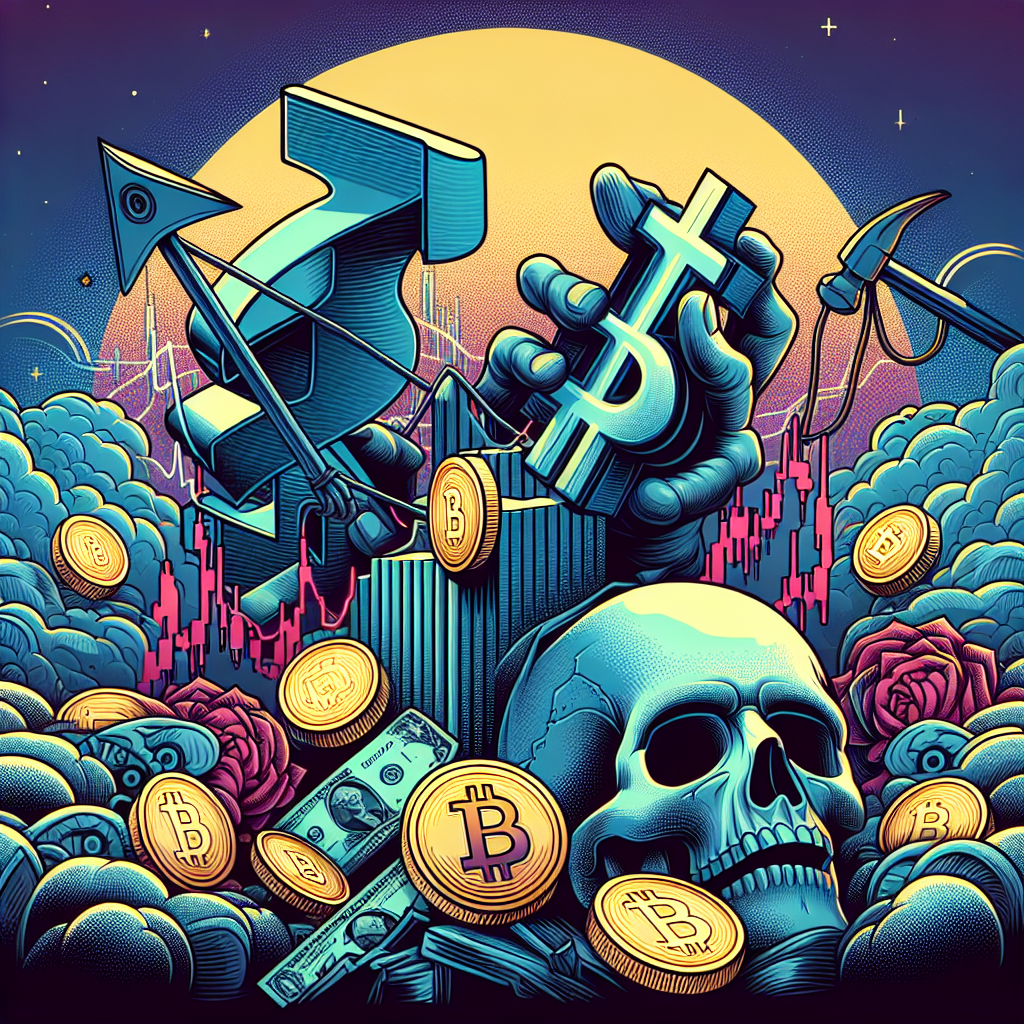Bitcoin
Peter Schiff Predicts Bitcoin’s Influence May Undermine U.S. Dollar Stability

Economist and renowned bitcoin critic, Peter Schiff, has stirred a new wave of discussions with his recent comments suggesting that Bitcoin may eventually undermine the U.S. dollar. He attributes this potential threat to possible U.S. government actions in the Bitcoin market, which could inadvertently devalue the national currency. Schiff, who has consistently viewed Bitcoin as a speculative commodity, raises alarms over potential government-induced economic bubbles due to excessive money supply inflation.
In a recent online post, Schiff warned that Bitcoin’s upward trajectory could herald the downfall of the U.S. dollar. He argues that this digital currency’s dramatic price increases have been considerably influenced by governmental interventions, which pose substantial risks to the dollar’s future stability. Schiff’s apprehensions particularly concern the prospect of the U.S. government embracing Bitcoin at a significant scale, perhaps even purchasing the cryptocurrency with freshly minted dollars. This, he argues, could inflate a considerable economic bubble that diminishes investor trust in the U.S. dollar.
Schiff was emphatic in his critique, stating, “Bitcoin could ultimately lead to the detriment of the dollar. Not by becoming the global currency but by the U.S. government’s potential actions to adopt Bitcoin, escalating money printing and inflating a bubble that could erode national wealth.” He further asserted that Bitcoin’s remarkable rise to its $98,000 mark owes more to government backing and political maneuvering rather than genuine market demand, suggesting that such government-supported growth could plunge the U.S. into an economic crisis.
Moreover, Schiff is skeptical about Bitcoin reaching the $98,000 threshold without significant governmental influence. He believes that political lobbying and alignment with government interests have been crucial in reaching such milestones. According to Schiff, this would not have been feasible in a free market environment but was instead achieved through governmental power dynamics.
However, Federal Reserve Chairman Jerome Powell offered a contrasting viewpoint, likening Bitcoin more closely to gold than to the U.S. dollar. Powell stressed that Bitcoin, much like gold, is a speculative asset and does not directly compete with the dollar. His perspective underscores Bitcoin’s emerging role as a hedge against inflation, similar to gold’s traditional function.
Further complicating the debate is former President Donald Trump’s proposal to create a national Bitcoin reserve through a new crypto advisory council. Schiff has criticized this plan, suggesting that large-scale government purchases of Bitcoin could destabilize the dollar. Trump’s vision involves the U.S. acquiring substantial amounts of Bitcoin each year, potentially amassing a reserve of up to one million btc. Schiff argues that such a move could divert attention from traditional secure assets like gold and ultimately weaken the dollar’s standing in global commerce.
Schiff warns that if the U.S. were to finance Bitcoin purchases by selling off gold reserves, it could trigger a financial downturn. Such actions might convey a message to international markets that Bitcoin is a safer store of value than the dollar, potentially leading to a loss of global confidence in the dollar as a reserve currency.
Adding another layer to the discourse are the ongoing efforts by BRICS nations to decrease their dependency on the U.S. dollar. This coalition, which includes Brazil, Russia, India, China, and South Africa, continues to explore alternatives for global trade transactions. In retaliation, Trump has threatened severe actions, including imposing 95% tariffs on BRICS exports, further complicating international economic relations.
The conversation around Bitcoin’s potential impact on the dollar is further fueled by the increasing adoption of cryptocurrencies and a growing global interest in diversifying reserve currencies. As the debate continues, the implications of these economic and political maneuvers remain a subject of intense scrutiny and speculation among economic experts and policymakers worldwide.
-

 Press Releases2 years ago
Press Releases2 years agoGaming Technologies of the New Time!
-

 Altcoins11 months ago
Altcoins11 months agoBitcoin Declines Below $80K: deVere CEO Nigel Green Remains Bullish on Long-Term Outlook Following Strategic U.S. Bitcoin Reserve Announcement
-

 Altcoins11 months ago
Altcoins11 months agoCalls for Enhanced Discussion on Bitcoin as Brazil’s Reserve Asset: A Move Towards ‘Internet’s Gold’
-

 Bitcoin1 year ago
Bitcoin1 year agoBitcoin Surges Past $64K as SEI and POPCAT Lead Daily Crypto Gains on September 25
-

 Press Releases2 years ago
Press Releases2 years agoEvo Exchange: Redefining the Decentralized Exchange Landscape
-

 Bitcoin7 months ago
Bitcoin7 months agoGrayscale Investments Submits Draft Registration for IPO, Aiming for Public Trading in U.S.
-

 Press Releases1 year ago
Press Releases1 year agoCODE, a Newly Born Project Brings Decentralization Back to the Main Menu
-

 Bitcoin7 months ago
Bitcoin7 months agoPeter Schiff Critiques New Crypto Legislation, Claims Bitcoin (BTC) Gains are Short-Lived




